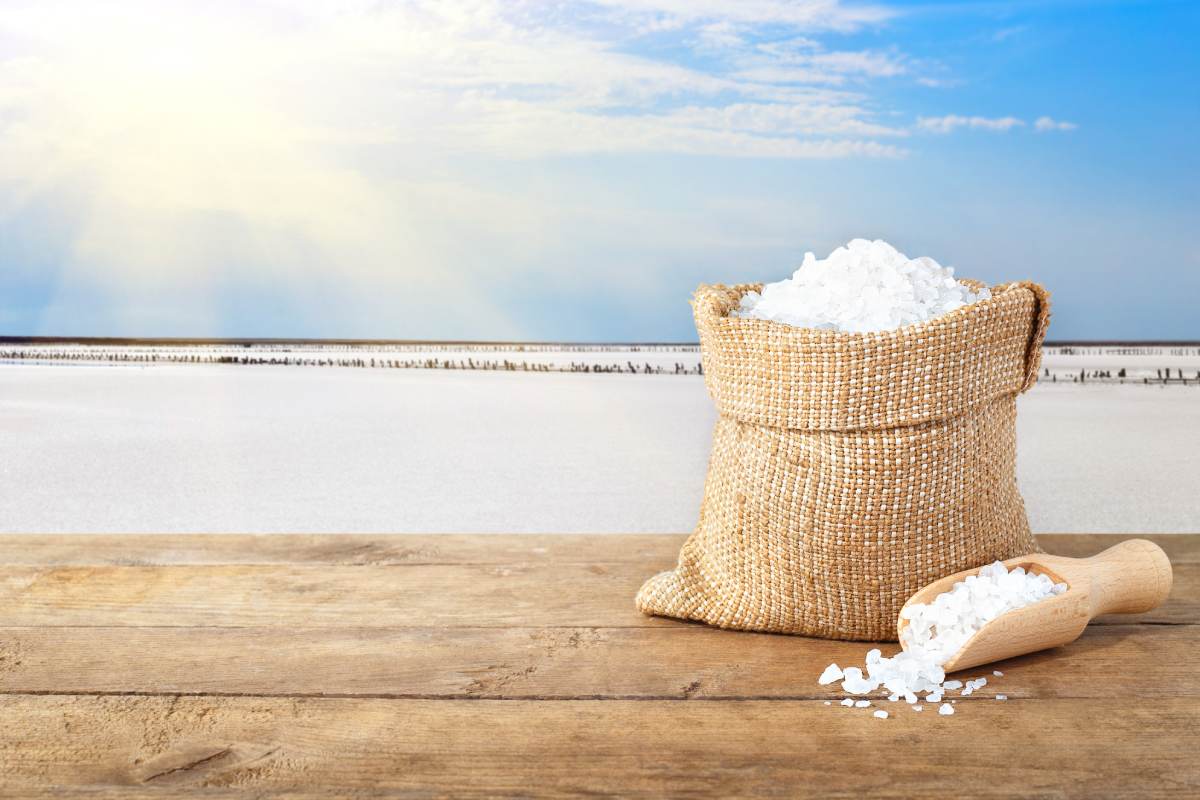Sea salt has been a seasoning, in the world, for ages, known for its versatility and natural origins.
It is created by evaporating seawater, which results in the formation of salt crystals. Unlike processed and refined table salt, sea salt maintains its minerals and flavors.
Read on this blog to explore different types of sea salt and their potential health advantages.
Table of Contents
What is Sea Salt?
Sea salt is a distinct type of salt that is obtained from the sea utilizing a specified method. It remains unchanged and preserves its mineral composition. The flavor of sea salt is milder, brinier, and sometimes even slightly sweeter than table salt. It can also have subtle mineral notes, depending on the source of the sea salt.
There are reasons why choosing sea salt over table salt is beneficial, for your health. Sea salt is a product that doesn’t contain any additives or artificial ingredients. Moreover, sea salt contains trace minerals like potassium, iron, and magnesium which occur naturally.
Additionally, sea salt offers versatility in cooking. By incorporating a small quantity, it is possible to enrich the flavor of meals such as chicken, fries, and vegetables. Sea salt can also add a texture and earthy taste to popcorn and salads. Due to its coarse texture compared to table salt, sea salt is a choice for sprinkling on goods, like bread, cookies, or ice cream. To know more about sea salt, Visit Ittefaq Salt – a sea salt supplier.
Types Of Sea Salt
Sea salt comes in many different types each with its own flavor and culinary magic. Let’s explore them:
· Smoked Salt
This salt has been gently smoked over a fire for about two weeks. It gives meats and vegetables a smoky and woody flavor. Most smoked sea salts taste different because they are smoked with different kinds of wood, like hickory, oak, mesquite, and alder.
· Hawaiian Salt
Hawaiian sea salt is a special blend of flavor, minerals, and charming color that makes it an integral part of Hawaiian cuisine. Hawaiian salt has trace minerals and metals depending on the nature of the water from where it is found. It has clay mixed in it that gives it color and an earthy flavor. There are two kinds of this salt:
- Lava Salt is sea salt that has been mixed with charcoal which gives it a black color and a hint of sulfur flavor. It is also called Hawaiian black salt.
- Alaea Salt is sea salt that has been mixed with alaea clay which gives it a red color and a mild flavor. It is also called Hawaiian red salt.
· Fleur de Sél
“Fleur de sel” is a best sea salt that is highly regarded by chefs and food enthusiasts for its delicate flavor, unique texture, and artisanal production process. Fleur de sel crystals are so thin and fragile that they can only be collected with a traditional wooden rake on sunny, dry, and slightly windy days. This salt works well with both sweet and savory dishes, like chocolate and caramel. It has a light briny taste and a very attractive blue-grey color.
· Celtic Salt
Celtic salt which is also called sel gris comes from the mineral-rich seawater along the coast of France. It is gathered by raking the salt from the bottom of tidepools after it has sunk and gathered more minerals which is a traditional Celtic method. This artisan salt is a little bit wet and has a briny taste and a gray color.
Uses And Benefits Of Sea Salt
When talking about healthy eating everyone is familiar with sea salt. It is not refined, so it does not go through the usual steps of processing like regular table salt. Here are some top benefits and uses of sea salt:
1. Better Digestive Health
Sea salt contains essential electrolytes like sodium, potassium, and magnesium. These electrolytes play a vital role in maintaining the balance of fluids in and around cells, including those in the digestive system. This balance is vital for healthy digestion and nutrient absorption.
2. Keep Your Bones Healthy
Sea salt provides your bones with the nutrients they need. It contains amounts of sodium and potassium which play a role in maintaining the electrolyte balance, in your body.
This balance does not only prevent cramps but also safeguards against osteoporosis and promotes strong resilient bones. The abundant presence of these minerals, in sea salt ensures that your bones remain robust enabling you to tackle life’s challenges.
3. Maintains Your Hydration
Contrary, to belief sea salt aids in maintaining hydration. Sea salt is rich in nutrients and can provide a prolonged feeling of satiety thus reducing our need, for excessive water consumption.
4. Detoxification
Some people believe that adding sea salt to bathwater can help draw out toxins through the skin. While a warm salt bath can be relaxing and may have some skin benefits, the idea that it significantly removes toxins from the body is not strongly supported by scientific evidence.
5. Enhances Flavor
Regular table salt is known for making food taste better but sea salt takes flavor to a whole new level. In addition to being tasty sea salt is also a good source of many important nutrients.
The larger, coarser grains of sea salt can provide bursts of salty goodness that hit the taste buds in a delightful way. They can enhance the sweetness of fruits, balance the bitterness of dark chocolate, and bring out the savory notes in meats and vegetables.
Concluding Remarks:
In conclusion, sea salt has been an addition, to our lives for its history and versatility. Sea salt is an ingredient that infuses our cooking and wellness endeavors with a touch of the ocean’s essence.

